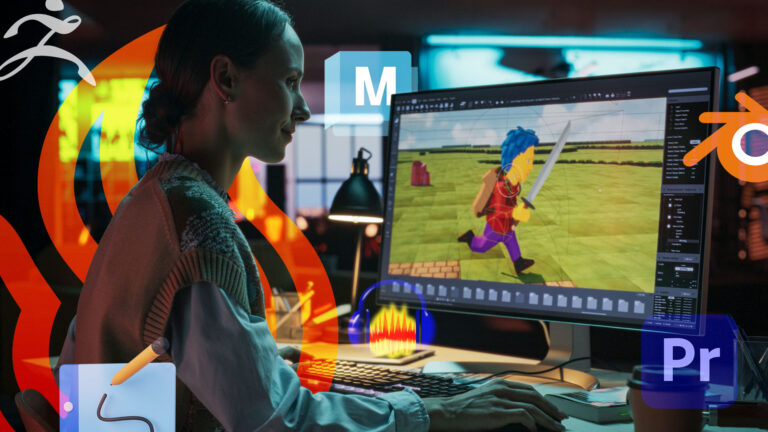It’s all too easy to feel overwhelmed when you are just starting out. Working your way up takes time, patience, and some failure and rejection. However, you must learn from your failure to succeed. When seasoned players and big-name record producers say that you have to pay your dues, they mean it, both literally and figuratively. From playing free shows for two to three people, to having your first record mistaken for a demo, the road for a new audio producer is long and hard.
So why does anyone do it? Because if you do find success, it’s sweeter than anything else in life. Even getting a little bit of acclaim or positive feedback is worth the effort. However, there are going to be some things you will need to make your own music.
Get Music Equipment
One thing about breaking into the music business is that it’s an expensive journey. Building up a complete home studio from scratch certainly can be expensive. That’s why so many unfortunate new musicians are put off by the high price tag on industry-standard recording tools and opt for cheap alternatives. It’s important to remember that no matter how amazing your hit song idea is, if you record it using something akin to your laptop’s built-in microphone or some other inferior device, what’s commonly referred to as a “potato” in internet circles, it’s never going to sound good. So how does one record a polished, radio-ready song without spending too much money on equipment for your home studio?
The key is to build up your collection gradually. As an audio producer just starting out, you don’t need to buy everything for your first album or early recording projects. Knowing this helps alleviate much of the financial strain that getting started might cause. With a few simple and strategic purchases like a quality laptop and digital audio workstation (DAW), there’s a whole lot that can happen from someone’s home studio.
Learn Music Theory
While it’s certainly not necessary for an audio producer to become a master of music theory in order to succeed, just getting familiarized with the most basic concepts can boost your career and open up numerous opportunities in ways some up-and-coming producers don’t fully appreciate. The great news is it’s not that hard to attain an intermediate level understanding of scales and chord progressions, and you don’t even have to learn an instrument to do it. You will learn much of this while taking an audio production program at a creative arts college.
Today, a person of any age or skill level can start using a music making program, and they can create something that sounds and feels completely professional. Plus, synthesized instruments are becoming more realistic every day.
This trend of digitizing music production has come with numerous programs that tout the ability to automatically make chord progressions and melodies without any knowledge of music theory.
While these claims may be technically true, there are certainly limitations on the originality of what you create if you’re just pointing and clicking your way through blindly. You can save yourself a lot of trial and error if you just take the time to attend an audio production program.
Practice Making Music
Assuming you are planning to use a DAW, it is cardinal that you take the time to learn how to use it. It’s not that hard to scratch the surface and learn about a few knobs and dials. A few simple lessons on digital music making will help you be ready to get started. However, going deeper and learning some advanced music-making techniques and really building up your chops takes a bit more dedication and, above all, time.
Once you think you’ve practiced enough and are the master of the DAW, it’s time to take to the internet and watch videos of the world’s greatest audio producers. No matter how good you are, there is someone out there in the world who is even better, and that’s a good thing. Thanks to the connectivity of the internet, it’s easier than ever to be inspired by someone else’s skill and dedication and take that inspiration to drive your abilities to greater heights.
Learning how to use a DAW isn’t a one-and-done kind of thing; you have to dedicate time to maintain your abilities every day, or at least on a regular basis. Life does happen, though, and plenty of audio producers regularly stop making music for months or even years at a time. Many say that it comes back to them like riding a bike while others have a harder time with it. No matter how easy the transition is, whether making music for the first time or picking it up after years of neglect, it’s possible for anyone to learn how to make music; it just takes lots of practice.
Networking with Audio Producers
The old saying “It’s not what you know, it’s who you know” is alive and well and truer than ever. While it’s a sad fact, if you don’t get to know people who are already successful in the music industry, it can be incredibly difficult to break in. Luckily, we live in a world that is more connected than ever, so you can easily find out who is open to working with newbies and who isn’t.
Listen to Music
Wouldn’t it be nice if you could just listen to your latest Spotify playlist and call that work? Well, for you, this can actually be a valuable time for honing your craft. Listening to music for an audio producer is not a passive activity. The more you do it, the deeper your ear will take you. The more musical knowledge you acquire, the more you’ll be able to glean from your listening sessions.
It’s important to listen to music in every genre. The more you push yourself out of your comfort zone, the richer and more diverse your own style will become. Making music is much more fun when you have more tools to work with. Listening to various genres and famous singers gives you these tools and enriches your career exponentially.
Follow Your Personal Style
It might be tempting to make music that is exactly what everyone wants to hear. Unfortunately, following that path can lead to creating something that is so derivative that it gets mistaken for something that’s already on the radio. Your best bet is to follow the music that you hear in your own head and follow the beat of your own drum in order to make something that’s fresh, different, and stands out in a good way.
There will be countless people along the way who will try to conform you and have you make music that’s more commercially viable. There’s plenty of value in making commercial music, and for audio producers looking to make a steady income on their craft, conformity might be the way to go. For those who can create music in any style on command, there are millions of radio ads and podcast theme songs waiting to be written, and people who are willing to pay you for it.
However, you may be interested in making your own music. In that case, the most important thing is to listen to your own voice. Once you’ve found the thing about you that makes you stand out, you’ll be well on your way to making music that people will want to hear. Most importantly though, it’ll be the music you want to make, so you’ll be all the more motivated to make it.
Build up a Following
One of the most discouraging things as a new audio producer is having no one notice all of your hard work. All of your friends and family members who you keep begging and nagging to like your Facebook page all have busy lives of their own. If you’ve ever felt like giving up just because you haven’t gotten any likes on your latest track or are in need of support on a new project, simply take a deep breath and remember why you’re doing all this. If the answer is anything other than “For myself,” it might be time to reevaluate.
Having crowds of screaming, adoring fans is one way to motivate a person to keep at their musical dreams, but it’s not a luxury that every audio producer is granted. In the beginning, you’ll have to find your own motivation and dream of the bright lights and big crowds on your own time.
The process of building up a following might be a slow one that’s filled with rejection, but it’s definitely worth it in the end. Investing in social media advertising and viral marketing campaigns can make a huge difference, and word of mouth is still alive and well. The number one thing to remember is to never be afraid to put yourself out there. No audio producer ever got big by being shy.
Final Thoughts
Making music is simply not worth it if it isn’t fun. While no one can pretend that every step along the way is filled with pure joy, there are still plenty of opportunities to enjoy yourself. Without enjoying what you are doing, there will be no joy in your recordings, and it’s the records made with love that really sell.
It’s important to remember why people make music: it’s something that they love. The honor and privilege of working in the music industry, even if that simply means tinkering around in the basement trying to find that new great idea, is something to be cherished.
Ready to start making your own music? University of Silicon Valley empowers aspiring audiophiles to master their craft. Our Digital Audio Technology Program students are exposed to new ideas and industry-grade equipment and are presented with challenges designed to unlock their creativity.
University of Silicon Valley is uniquely poised to offer a meaningful and valuable education for 21st century students. We believe in an education that directly correlates with the work you’ll be doing after you graduate. Interested in learning more? Contact Us today.


